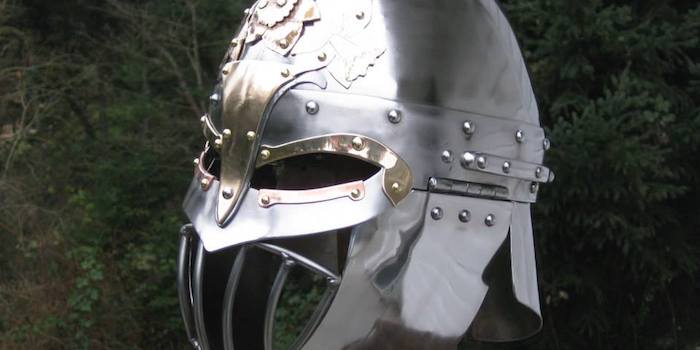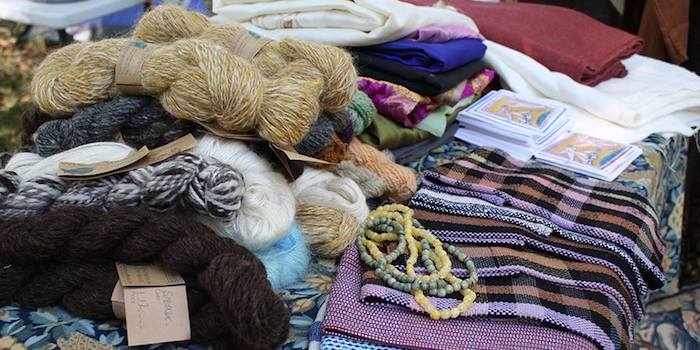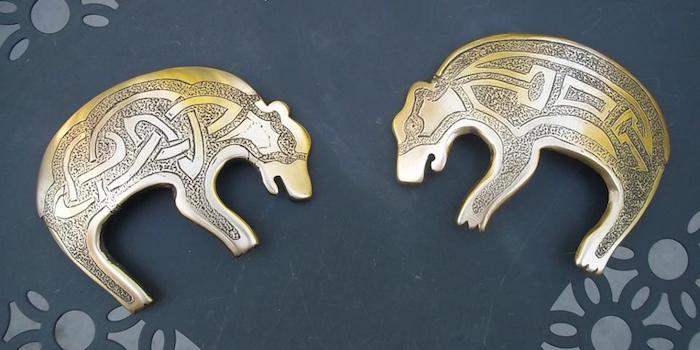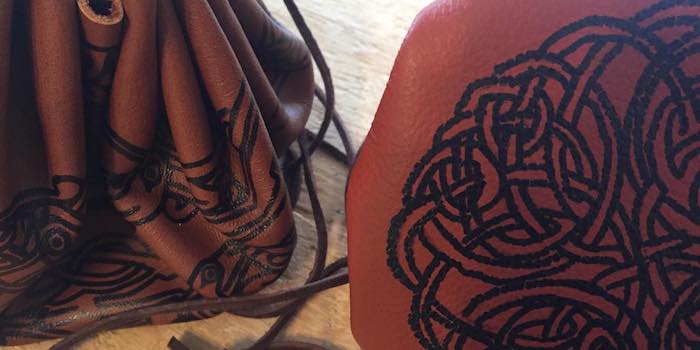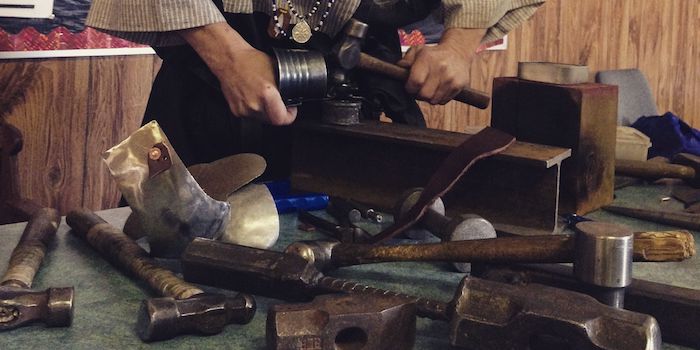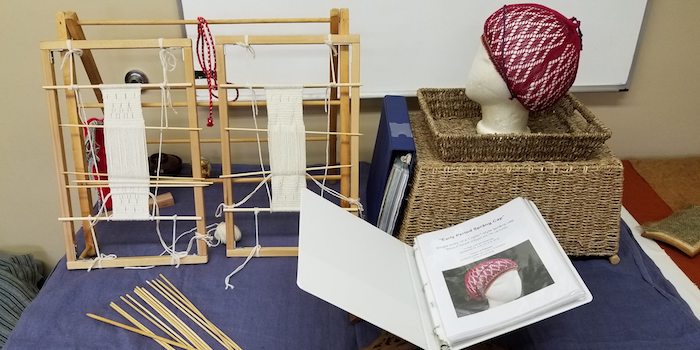Arts and Sciences
Arts, Sciences, Bardic and Education
The Society for Creative Anachronism encourages participants to dive into historical research and reenactment, and to share their knowledge with others. You will find singers, storytellers and dancers, calligraphers and painters, tailors and milliners, leather workers and armourers amongst our people. Any craft that may have been utilized pre-17th C, you are likely to find someone interested in, and practicing it.
So what to do with all these skills? Some enter competitions, vying to be Shire, Principality, or Kingdom Champions. Others merely display their work, exploring their art for curiosity's sake.
Some donate items they've crafted as Largess -- gifts to the sitting Royalty, so they might be able to exchange these gifts with neighboring Royals, to be distributed amongst their people. Most importantly, if you are enthusiastic about a topic, that enthusiasm can be infectious and others may want to learn. We prize those willing to share their knowledge and teach very highly, either through demonstrations to the public or as formal classes within the society.
Activities
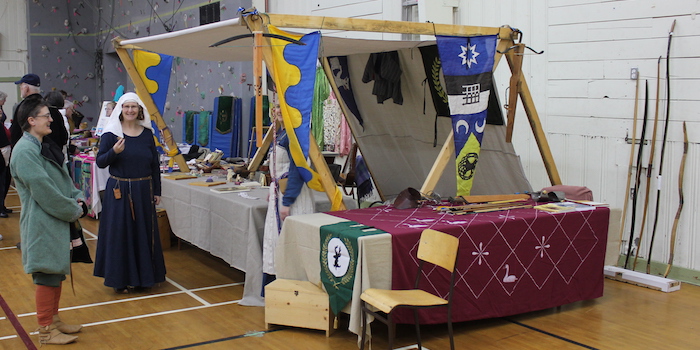
Demonstrations
As an educational society, we are delighted to share anything about the arts, crafts, and skills of the pre-17th century medieval world. We hold static and active presentations at schools and fairs, as schedules allow, happy to show the results of study, and the joys of doing. This is where you can get a first taste of the SCA, and chat with the creators of many of the medieval-style items on display, and the fighters and workers at their craft.
In addition, sometimes we organize Newcomer Workshops to provide a demo with more depth; it is focused on those new and curious, to give them a juicier sample of what we do. These workshops range from discussion topics to the making of interesting and useful items.
If your group is interested in a demo for your special event by the Shire of Hartwood, please contact our Chatelaine.
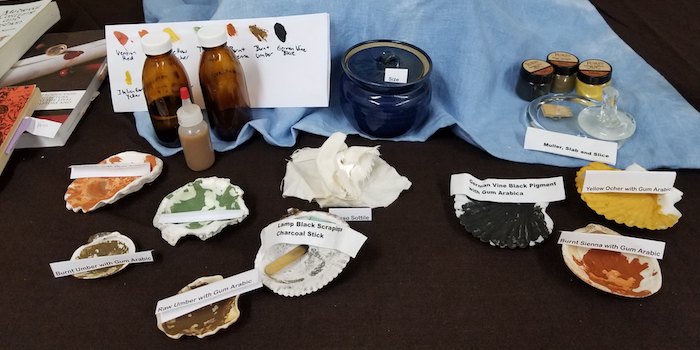
Competitions
Competitions come in a wide variety of formats. They range all the way from fun and silly to serious, from most popular to most historically accurate, and from complete novice to very experienced. While there is not necessarily something for everyone in each competition, there is always another competition coming along that will meet your needs and tickle your fancy.
Some competitions will ask for documentation, either spoken (oral) or written. Our Library contains a few articles on competing that may be of use to those looking to explore this aspect of our Society.
Championships are a special kind of competition, where the victor represents the branch for one year. This can come with additional responsibilities such as sponsoring next year's competition to find their successor. In many cases you must be a paid member to compete. Championships are a fun way to earn word-fame, and to meet people who share your passion from all over the Principality or Kingdom.
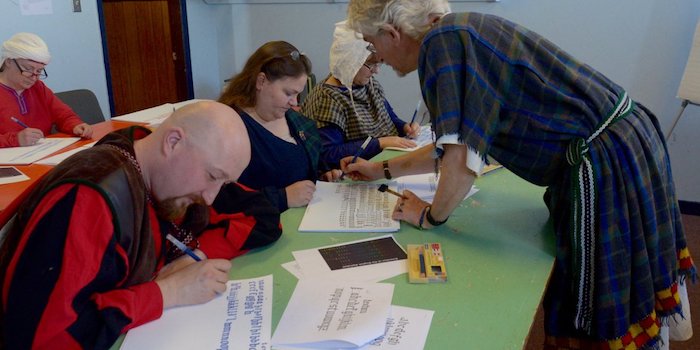
University of Tir Righ
The University of Tir Righ is our Principality's educational arm, offering formal classes in a wide variety of subjects such as textiles, armoury, fine arts, heraldry, martial arts, and SCA-specific administrative topics such as event planning and leadership skills.
Hartwood hosts an annual University of Tir Righ Session in spring, and several workshops throughout the year. For more information on the University, visit it's website. For more information on upcoming workshops and learning opportunities, contact our University of Tir Righ Minister.
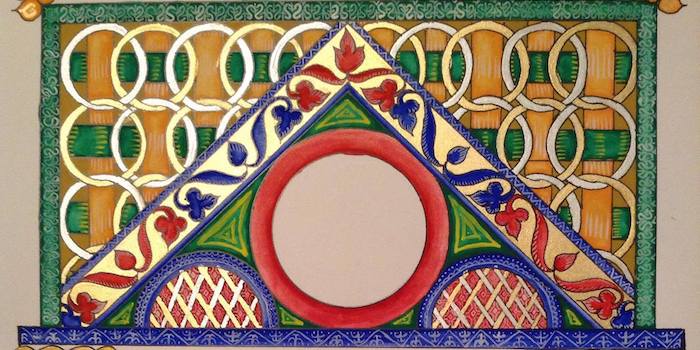
Scribal
Scribal activities encompass calligraphy, and illumination (painting and gilding/goldwork), but also design/layout and wordsmithing. No one person is expected to fill all these roles, but together we collaborate to design and create medievally inspired works of art.
In the Kingdom of An Tir, we offer one of two kinds of scrolls with each award. First is a Charter: a Charter is a design that has been commissioned early in a reign, then photo-copied and distributed for unique painting. Charter painting is often the first step a new scribe takes. The other is an Original Scroll: Original Scrolls are commissioned either before, or after an award has been given, and are typically customized for the recipient and are entirely unique. These are often advanced and elaborate works of art with many hours put into them using high-quality materials; they are intended to be treasured.
Knowing that your work will be given to someone can be intimidating for new artists, so in Hartwood we have created a training program of our own. We offer occasional workshops on various scribal topics, and invite any of our populace to submit scroll designs, or wording, for our Shire Tokens (which are like awards, but represent gratitude from the entire Shire rather than acknowledgment from the Sovereigns themselves). Our Chief Scribe may assist in guiding you to a more medieval eye for design with advice and examples. If you prefer to simply paint, there are always charters on which to practice your technique.
A basic kit for Scribal will depend on which aspect interests you. A designer will want access to original documents for inspiration (check out our Library's Scribal section for a lengthy list of links), pencil, eraser, large paper, rulers and perhaps french curves or circle guides. A Calligrapher will need nib pens, ink, paper, pencil, and ruler. An AMES Lettering Guide is extremely useful. Illuminators will need good quality brushes, one capable of holding a fair amount of paint, and a fine brush for detail work, and a palette of gouache. The favoured brands are Winsor & Newton Designers, Holbien, and M. Graham. Speak with our Chief Scribe to see if any loaner equipment is available if you'd like to try your hand at it.
Ultimately, scribal works from the simplest thank-you card through to the most elaborate of scrolls are a welcome and needed service within the society, and for many a pleasant and calming way to spend an evening. Hartwood has a facebook group dedicated to small challenges and inspiration; feel free to join us and start a conversation.
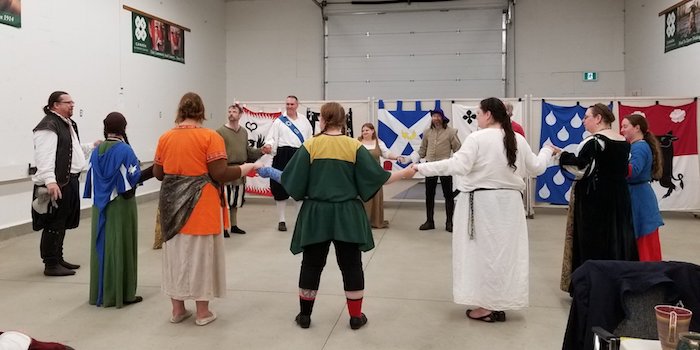
Performing Arts
The Bardic Arts (also known as Performing Arts) are so much more than those skills of the ancient bards. These skills are more than songs and stories, and include poetry, drama, puppetry, dance, juggling, tumbling, and instrumental music. The SCA is a participatory organization, and we are encouraged to explore all the possibilities.
Q: How many calves' tails will reach from here to the moon?
A: Only one, if it be long enough!
Riddles were all the rage in medieval Europe!
Events give opportunity to share and entertain each other.
Bardic circles tend to happen at camping events, with a designated person who sets the rules to ensure all those who wish have a chance, and no one person dominates: "pick, pass, or play"; or "popcorn". They also determine when the mood needs shifting, from dark to light, or from loud to quiet in the wee hours. (Participants need to keep their pieces in SCA/pre-17th century style, under 6 minutes, and appropriate to the audience.)
Feasts may have dancing organized, both as entertainment for others, and for the populace at large. Vocal and instrumental music may be set for centre stage, or even as a background for dining ambience. Scheduled performances of other bardic arts are sometimes set for between courses.
Court will sometimes have unavoidable gaps between items of business, and bards might be requested to present a short or interruptible piece to entertain the audience. (If Royalty tells you to sit down, please do!)
Interested? Our A&S (Arts and Sciences socials) often have informal opportunities to share and learn any of the skills listed at the top. Classes may be had at SCA events, and at specialized workshops. And you are always welcome to sit in at any bardic circle to learn by osmosis!
Find your limelight!
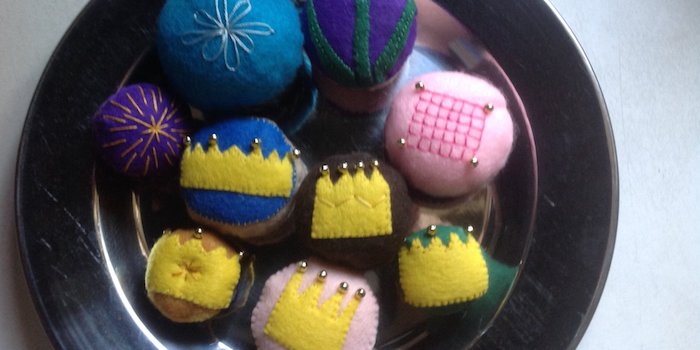
Largess
When you attend events, you may notice Royalty exchanging gift-bags with one another, or passing such a bag onto the Event Steward to distribute amongst their volunteers. Perhaps the Prince will gift an item directly to an individual if so moved. These items are rarely purchased; rather they are hand-made by the populace and donated as what we call 'Largess'.
If you are fortunate enough to recieve one of these items, you may not recognize the name of it's creator -- thats because when their Magesties travel to other Kingdoms, they take the items our people have created and exchange them. The finest works can be passed from the hand of our Queen to that of Drachenwald (Europe) or Lohac (Australia), and from theirs to a worthy member of their populace.
While Largess is always needed, there are some guidelines we like to follow. Any item you offer should have a tag or label that has your name and your Shire upon it; some recipients like to send thank-yous. Food items that can spoil, liquids that can spill, fragile items without proper packing that can break, wax that can melt, etc, should be avoided. It would be a shame if a donated item damaged others! Many items offered are feminine, or for adults; items for men (or unisex), or children are always welcome. And finally, consider size. Someone has to take everything home and store it until it's gifted; That camp bed might be generous, but a bit cumbersome.
It's always appropriate to ask the Sovereigns' head of retinue (found on the Principality of Kingdom Website) what is missing, or if the current sitting Royalty have preferences or themes. For general Largess ideas, the Kingdom of the West has an excellent article on the topic.
